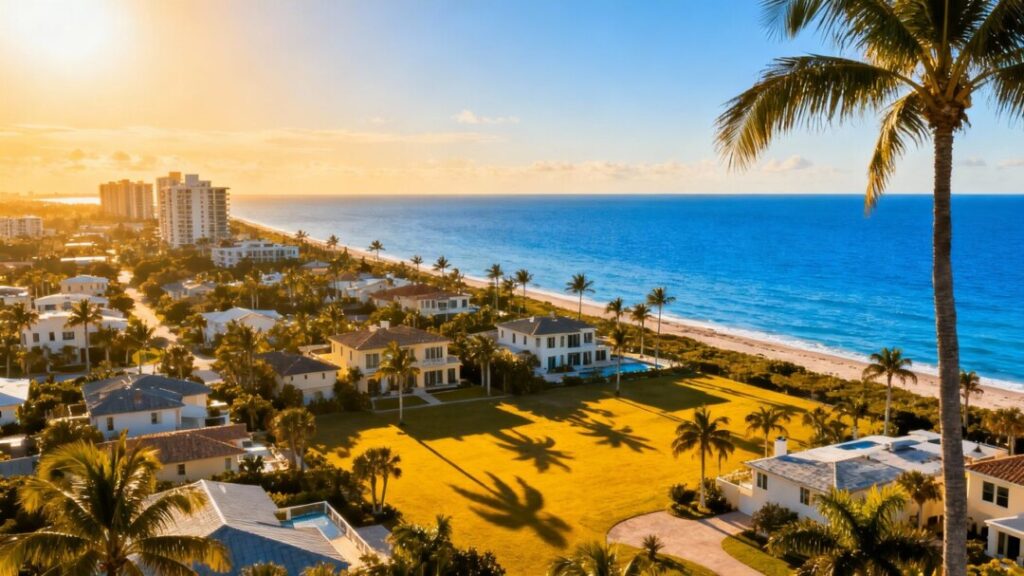South Florida’s once-booming real estate market is experiencing a significant downturn, marked by declining sales and increasing inventory. After a period of intense activity fueled by the pandemic, the region is now grappling with a prolonged slump, particularly in the condo market, as rising costs and shifting buyer priorities reshape the landscape.
Key Takeaways
- South Florida’s housing market, once a pandemic hotspot, is now in a prolonged slump with double-digit sales declines.
- Inventory has surged, particularly in Miami-Dade, Broward, and Palm Beach counties, shifting the market balance towards buyers.
- Rising insurance rates, property taxes, and mortgage rates are straining homeowners and deterring potential buyers.
- The condo market is especially affected by new safety regulations following the Surfside collapse, leading to increased HOA fees and special assessments.
- While the luxury market shows some resilience, the middle market, especially condos, faces significant challenges.
From Boom to Bust: A Market Correction
The vibrant South Florida real estate market, which saw unprecedented growth during the pandemic driven by low mortgage rates and remote work trends, is now facing a stark reality. Sales have declined significantly across Miami-Dade, Broward, and Palm Beach counties. In Miami-Dade, active listings increased by over 43 percent year-over-year in April, a much faster growth rate than the national average. This surge in available homes, coupled with dwindling sales, suggests a significant market correction is underway.
Factors Driving the Slump
Several factors are contributing to the current downturn. Elevated mortgage rates, high home prices, and increasing housing costs, including homeowner association (HOA) fees and home insurance premiums, are making ownership less affordable. The aftermath of the 2021 Surfside condominium collapse has led to new statewide safety regulations, requiring older condo buildings to undergo structural inspections and set aside funds for maintenance. These reforms have resulted in special assessments and higher monthly fees, making many older units less attractive to buyers.
Condo Market Woes
The condominium market has been particularly hard-hit. Condo sales have fallen by double digits across the region, with significant drops in Miami-Dade and Broward counties. While recent legislation aims to ease the financial burden on condo owners by providing more time for repairs and allowing pauses in reserve fund contributions, it remains to be seen if this will be enough to revive buyer interest in older properties. The FHA financing limitations for many condo buildings further complicate matters for potential buyers seeking lower down payments.
A Polarized Market
Despite the overall slump, the South Florida market exhibits polarization. The luxury segment, particularly for high-end single-family homes, has shown more resilience. However, the middle market, especially condos, is struggling. While median prices in Miami-Dade have continued to rise year-over-year, the pace of growth has cooled. In contrast, sales in the more affordable range for many residents—between $200,000 and $400,000—have plunged.
Normalization or Reckoning?
Real estate insiders describe the current situation as a normalization rather than a market reckoning. The intense competition and rapid price appreciation seen during the pandemic have subsided. Buyers are now more cautious, considering economic conditions, insurance costs, and mortgage rates. Sellers are learning to temper their expectations, with many properties selling at prices lower than initially anticipated. The market is shifting towards a more balanced state, where buyers have more negotiating power than in recent years.


